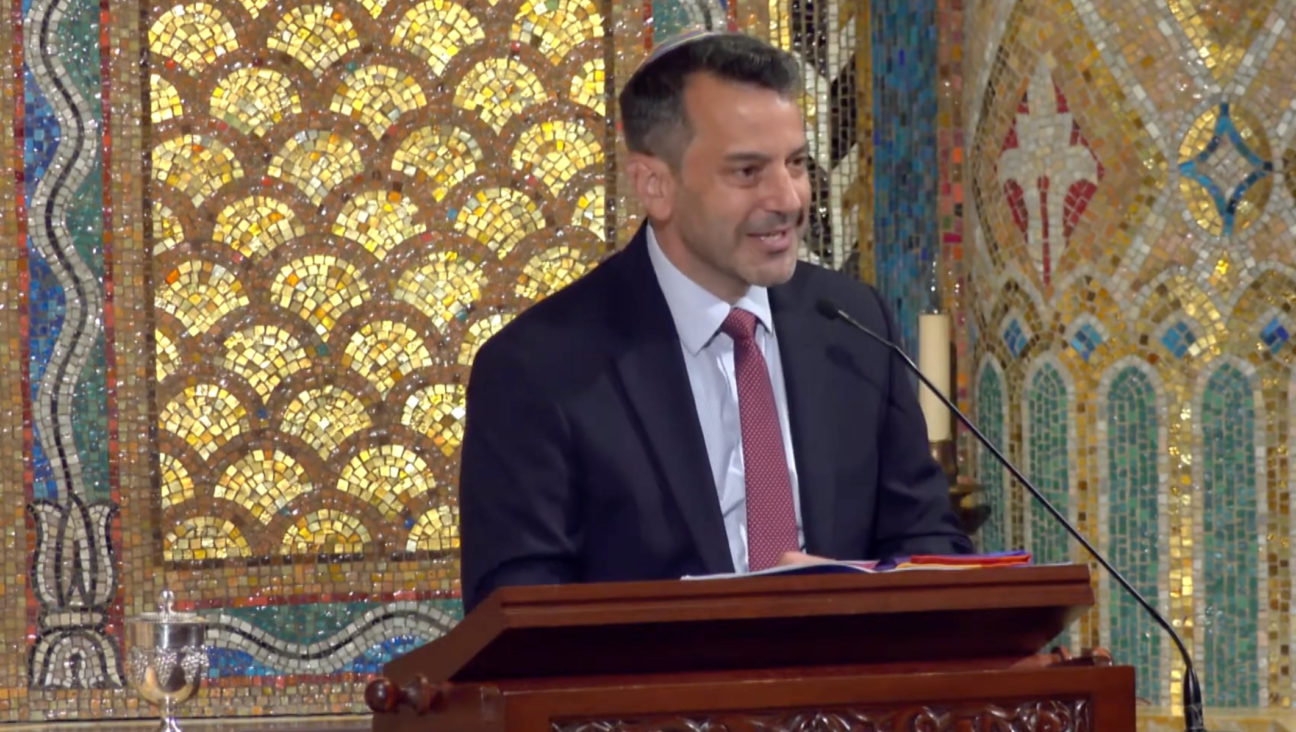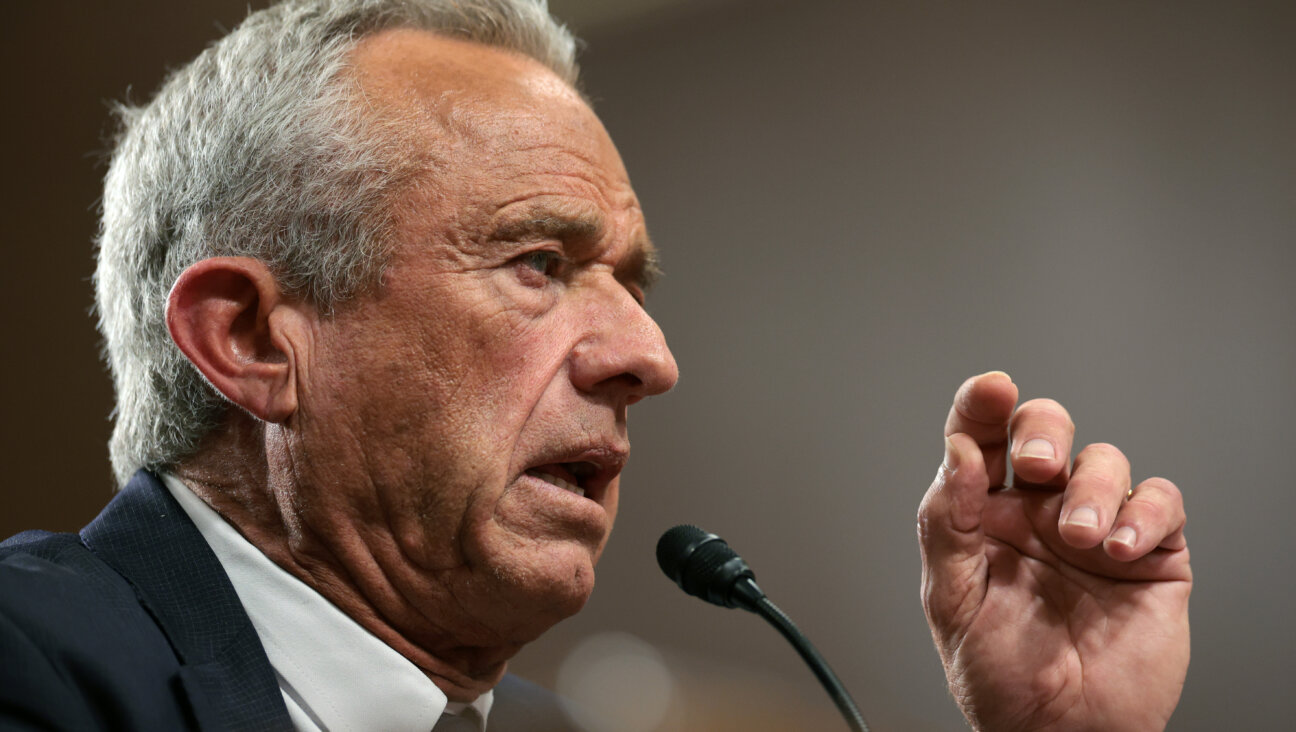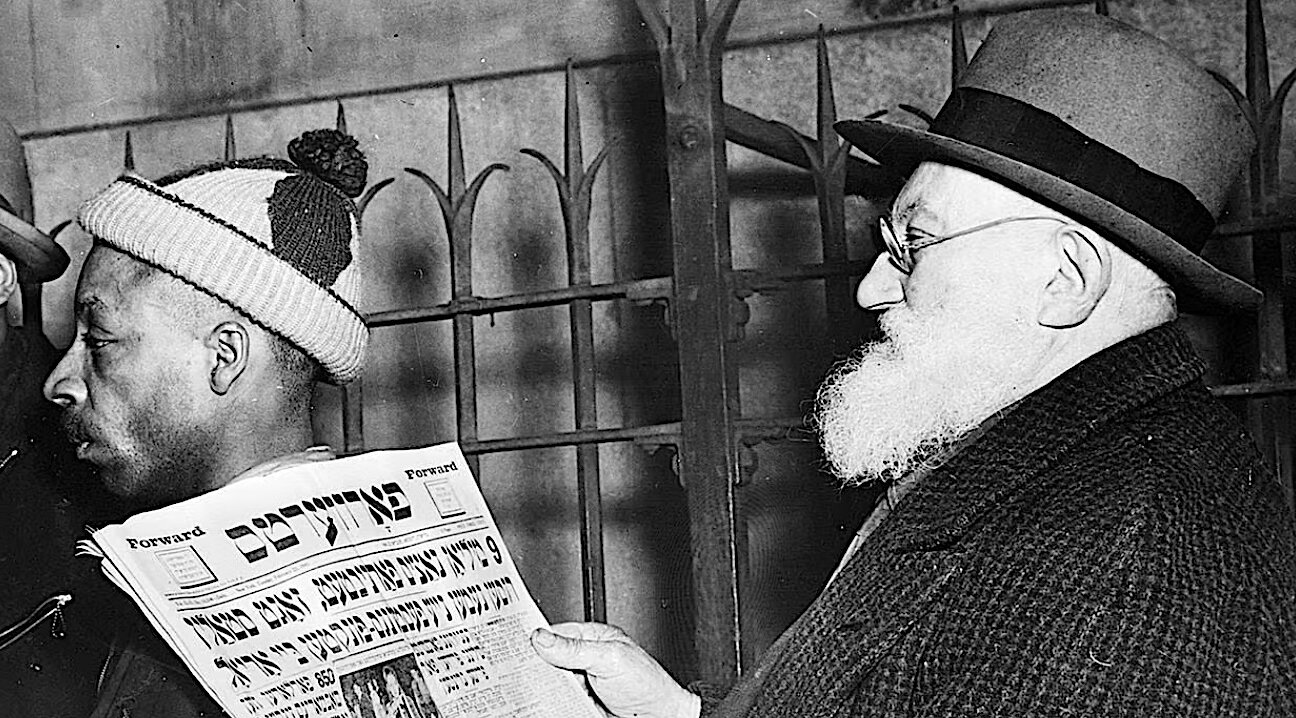Oscars Knocked for Nazi Filmmaker Nod
The executive director of the Academy of Motion Picture Arts and Sciences is defending the decision to honor Nazi propagandist Leni Riefenstahl during the Oscars ceremony.
The inclusion of Riefenstahl, nicknamed “Hitler’s filmmaker,” in Sunday night’s video montage memorializing members of the movie industry who died in 2003 is being heavily criticized by several prominent Holocaust scholars and Jewish organizational leaders. At the very least, critics said, the Academy should have noted on-screen that Riefenstahl worked for the Third Reich, instead of merely listing her as a “documentary filmmaker.”
The idea of an on-screen footnote citing Riefenstahl’s Nazi link was dismissed by Bruce Davis, the Academy’s executive director. “So there’s a footnote up on the screen noting that incidentally this is a terrible woman,” he said. “That would be just a tiny bit clumsy.”
Davis told the Forward that the Academy focuses solely on artistic contributions when it considers whom to include in the annual tribute. Riefenstahl, he said, is on any film historian’s list of greatest documentarians and “it would have been a pointed statement of one kind not to include her.”
Riefenstahl, notorious for her documentary “Triumph of the Will” chronicling the 1934 Nazi Party rally at Nuremberg, was included in the visual tribute to about two dozen movie industry figures, along with such acting stars as Gregory Peck and John Ritter. Davis added that he and his counterparts were aware of “the kind of movies she made,” and that mentioning her “would not make everyone happy.”
Indeed, the decision to include her drew condemnations.
“Her art was directly linked to politics, and she made two of the most masterful propaganda films in the service of [the Third Reich],” said Michael Berenbaum, a Holocaust scholar and past president of Steven Spielberg’s Shoah Foundation, who now serves as a consultant to museums and film projects. “To let that pass without mention is to presume that art is valueless, and that’s an abomination.”
Rabbi Abraham Cooper, associate dean of the Simon Wiesenthal Center, also spoke out against the honor: “Giving her that kind of placement was inappropriate.”
The David S. Wyman Institute for Holocaust Studies near Philadelphia has issued a letter to the president of the Academy, but Cooper told the Forward that he was unsure whether the Wiesenthal Center would issue an official statement.
Some critics, off the record, suggested that the Wiesenthal Center, which has won several Oscars for documentaries that it produced, might have future award ceremonies in mind when deciding whether to issue a negative statement about the Academy. But Cooper strongly rejected such claims, insisting, “there isn’t anyone in this town who isn’t aware of the center’s outspoken criticism of this woman.”
“At this point, there’s not much to respond to,” Cooper said. “If they would have asked us beforehand, we would have told them not to do it.”
Along with the harsh criticism generated by the tribute, the controversy also provided material for Jon Stewart, host of The Daily Show on Comedy Central. In a bit about the applause each deceased cinematic icon received, Stewart joked: “Nazi documentarian Leni Riefenstahl… not so much. Hollywood loves female directors, not so crazy about Nazis.”
Closely associated with the Third Reich’s upper echelons, Riefenstahl offered them her services as a filmmaker. In addition to “Triumph of the Will,” she produced “Olympia” in 1938, a two-part film depicting the 1936 Olympic games in Berlin. Both films utilized innovative and masterful techniques, such as moving cameras and unusual angles.
After World War II, Riefenstahl was shunned by the film community. In later years, she became well-known as a photographer.
“You’d think that the folks who put together that montage would have given the issue a bit more thought,” wrote Los Angeles Times film critic Manohla Dargis, in an e-mail to the Forward. “I don’t know if they were trying to be controversial or fair-minded or if they’re just stupid, but my money is on the latter.”
A message from our Publisher & CEO Rachel Fishman Feddersen

I hope you appreciated this article. Before you go, I’d like to ask you to please support the Forward’s award-winning, nonprofit journalism so that we can be prepared for whatever news 2025 brings.
At a time when other newsrooms are closing or cutting back, the Forward has removed its paywall and invested additional resources to report on the ground from Israel and around the U.S. on the impact of the war, rising antisemitism and polarized discourse.
Readers like you make it all possible. Support our work by becoming a Forward Member and connect with our journalism and your community.
— Rachel Fishman Feddersen, Publisher and CEO






















